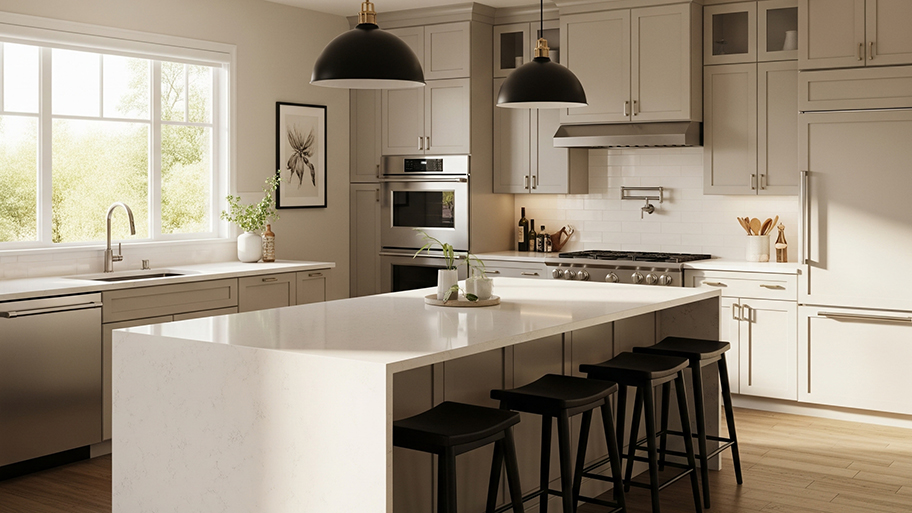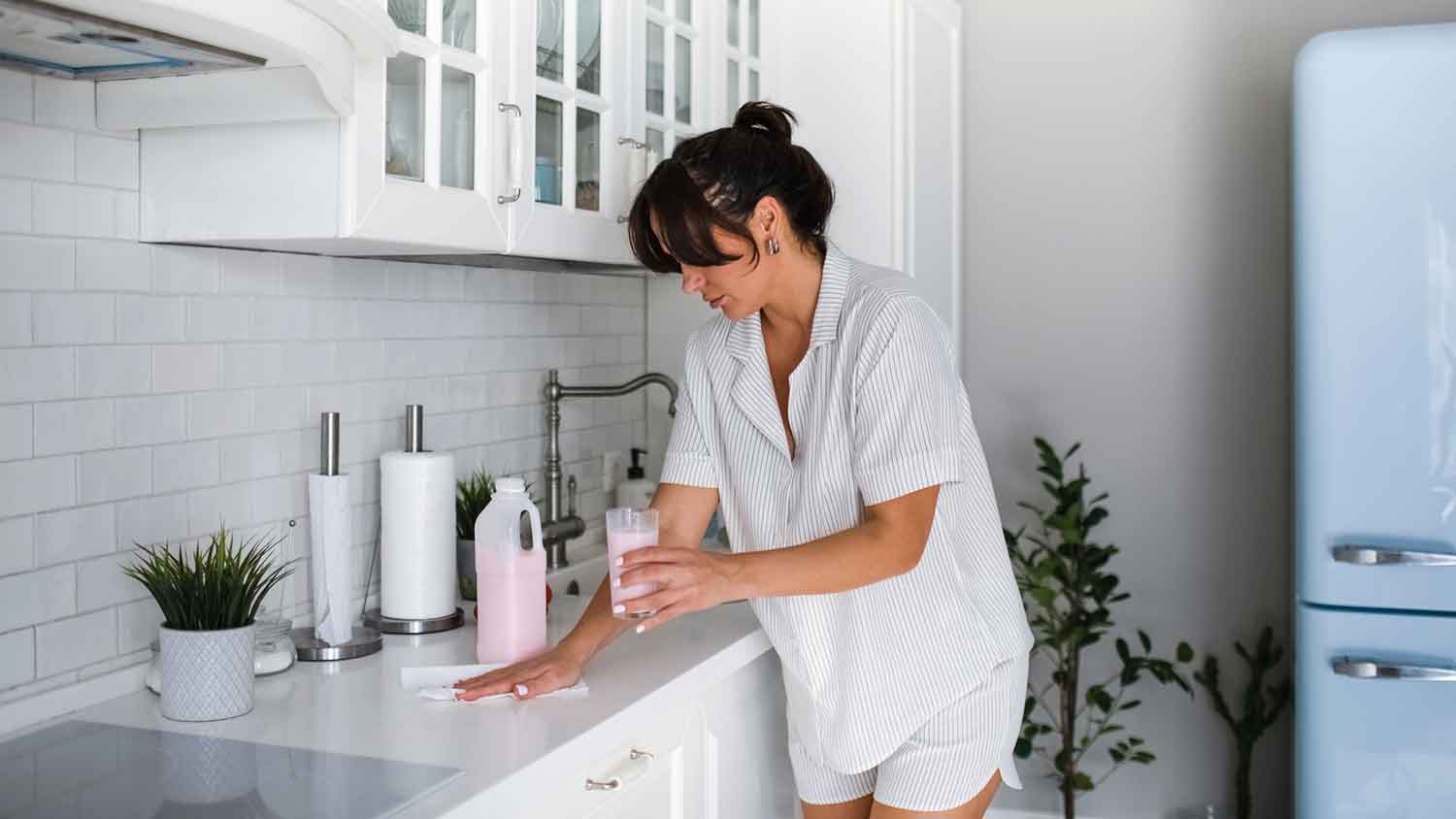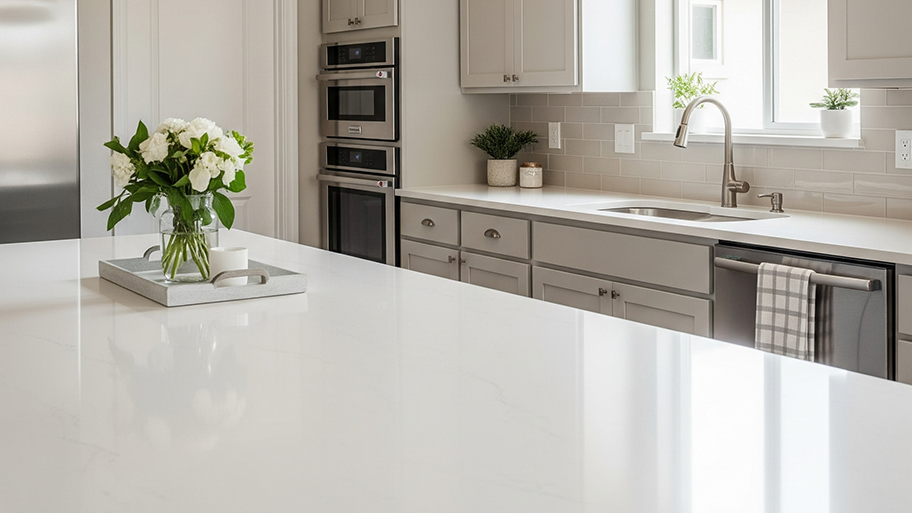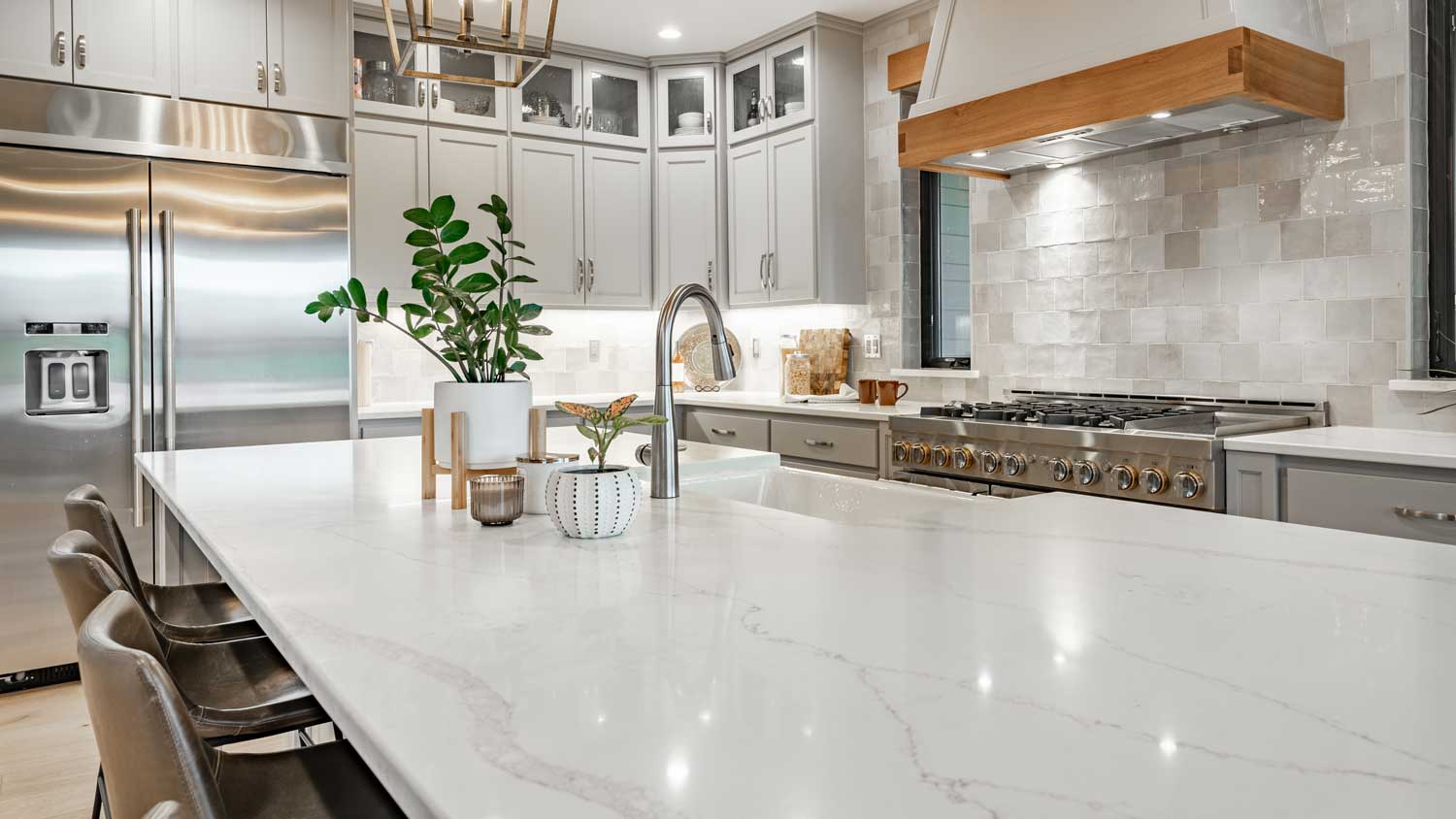
New quartz countertops can give any kitchen a facelift. Find out quartz countertop costs, including quartz slab prices and the cost of installation.
Quartz is low-maintenance—but not no-maintenance


Quartz is an engineered countertop material, unlike natural marble or granite.
Quartz is nonporous, which means it doesn’t absorb liquids and resists bacteria.
Homeowners appreciate that quartz is both stain- and heat-resistant.
While quartz is relatively low maintenance, it can fade and discolor if not cared for.
Deciding whether to seal quartz or not depends on your home and lifestyle.
If you are one of many homeowners dreaming about updating your kitchen, there's a good chance that quartz countertops are on your radar—and for good reasons. This engineered stone has a wide range of good looks and impressive durability. However, regarding care and maintenance, the big question is: Do quartz countertops need to be sealed? Simply put, no, but the complete story deserves a closer look.
Unlike many natural stone surfaces, such as marble or granite, quartz is an engineered material that combines roughly 95% natural quartz crystals with resins and pigments.
The resin binders make quartz nonporous, meaning it doesn't absorb liquids, which helps it resist stains and bacteria. While this makes quartz relatively low-maintenance, it's not immune to wear and tear. Over time, especially in lighter shades like white quartz, you may notice some fading or spotting after exposure to harsh cleaners or prolonged direct sunlight.
Before you commit to any type of stone countertop, including quartz, there are many factors to consider. Homeowners can get up to speed on their options by working with a local stone countertop specialist. Depending on your location and the size of your kitchen, most quartz countertop costs range from $1,500 to $8,000.

One of the top advantages of quartz is that you don't have to seal it. But that doesn’t necessarily mean that sealing is entirely off the table. An appropriate sealer can add an extra layer of protection against discoloration over time, especially in high-traffic kitchens. If you choose this route, using a sealer formulated explicitly for quartz is essential.
Unlike natural stone, quartz contains resin binders that give it a nonporous surface. Using a sealer designed for natural stone will likely leave a residue that cannot adhere to the nonporous surface, interfering with the resin and potentially damaging the finish. To keep your countertops looking and performing their best, always follow the manufacturer’s care recommendations.
Applying a sealer to porous counters helps prevent damage like stains, watermarks, and etching. Natural stones, like granite, marble, and sandstone, and concrete and wood counters require regular sealing. Your countertop installer can tell you how often to seal your counters for the best results.

Quartz countertops are pretty resilient, but like other kitchen superheroes, such as tile backsplashes and luxury vinyl floor planks, they are not indestructible.
You can bet on quartz being moderately heat-resistant, but it is not heatproof. For homeowners, that means you can't place searing hot pots, pans, or cooking sheets directly on these countertops. If you do, it will lead to discoloration or, even worse, terrible cracks. That's why quartz's best friends in the kitchen are trivets, heat pads, and wood cutting boards.
Fans of bleach and abrasive cleaners take heed. Products like these, including those with high pH levels, can break down the resin that helps make quartz countertops so durable, dulling the surface over time. When in doubt, learn how to clean quartz countertops. Stick with mild soap and water or a quartz-safe cleaner.
Quartz is undoubtedly scratch-resistant, but that does not mean you should do all your slicing and dicing directly on the counter. If you cook regularly, use your cutting board to avoid wearing down the surface.
Like certain fabrics or finishes in your dwelling, quartz countertops don’t love prolonged sun exposure. Over time, too much direct sunlight can cause quartz surfaces to fade or discolor, leaving uneven patches or a duller appearance. If your countertops get a lot of natural light, consider using window treatments or UV-filtering film to help preserve their color.
Strong chemical solvents, such as nail polish remover and drain cleaners, can damage the surface and compromise the finish. It is imperative to avoid spilling chemicals on quartz; if you do, clean it up quickly.
From average costs to expert advice, get all the answers you need to get your job done.

New quartz countertops can give any kitchen a facelift. Find out quartz countertop costs, including quartz slab prices and the cost of installation.

Marble countertops have yet to go out of style, and likely won't any time soon. This strong, durable, and stunning material melds with most kitchen, bathroom, and even dining room designs. But how much do marble countertops cost to install?

Silestone® has long been a favorite of homeowners who like the look of quartz. Budget for your Silestone® countertop’s cost with this helpful guide.

If you’re preparing to install ceramic or porcelain tile, here are the tile questions you should be asking about the project.

Are you weighing engineered stone vs. natural stone countertops? Both offer many of the same benefits, but there are differences in price, durability, and appearance.

Learn how to seal marble countertops to preserve this porous stone’s integrity. This step-by-step guide covers sealant testing and application.